This week we’ve found a large number of phishing scams that you need to watch out for, including ones relating to Home Depot, Walmart, Amazon, Bitcoin, Coinbase, MetaMask, and Trust Wallet. Would you have been able to spot all the scams?
Phishing scams are one of the most commonly used tactics by scammers. Conventionally, while impersonating famous brands, they send out fake text messages and emails containing phishing links and try to entice you into opening them with various lies.
In such phishing schemes, the links lead to online survey pages that state you can claim a gift by filling out a questionnaire. After you complete the questionnaire, you are prompted to enter credit card details before your “gift” can be delivered. Here are a few examples:
Home Depot Survey Scam
We’ve written about several popular Home Depot scams before. And recently scammers have started trying to deceive people via email:
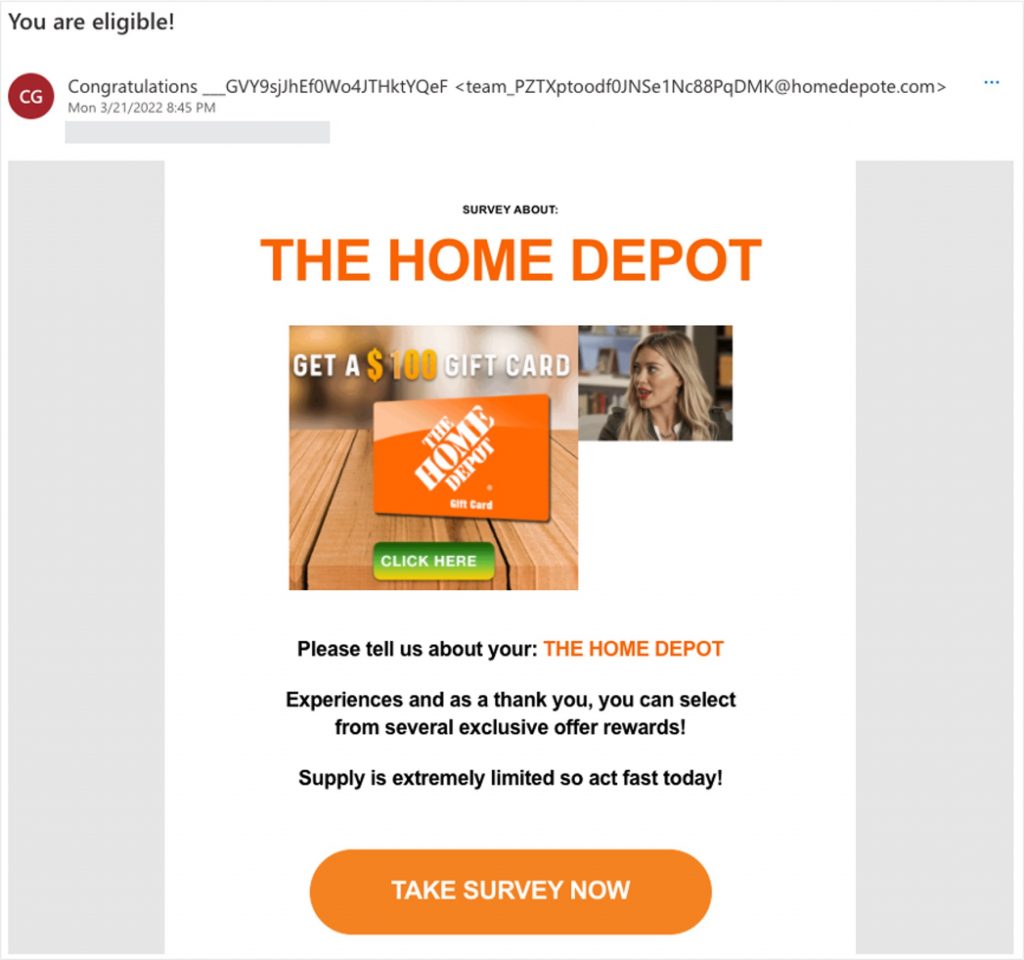
The embedded button will take you to a fake online survey page where you could eventually end up having your personal information exposed. Don’t get scammed!
Browse the web safely with Trend Micro ScamCheck (it’s free!)
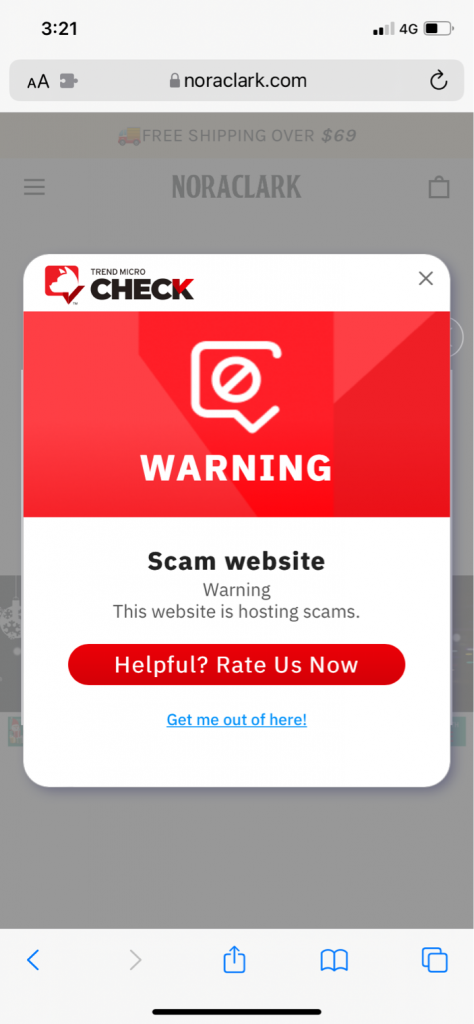
ScamCheck is an all-in-one browser extension for detecting scams, phishing attacks, malware, and dangerous links – and it’s FREE!
After you’ve pinned ScamCheck, it will block dangerous sites automatically! It’s available on Safari, Google Chrome, and Microsoft Edge.
Check out this page for more information on ScamCheck.
Walmart Survey Scam
Scammers pose as Walmart and claim that you’ve won a prize in a “customer draw”. They send you messages such as this:
- You’re a winner, CHERYL! The 4th place in our weekly customer draw is yours and here’s your prize: <URL>
The links inside the messages will take you to fake Walmart online survey pages that say you can get an iPad Pro as a reward after completing one of the questionnaires:
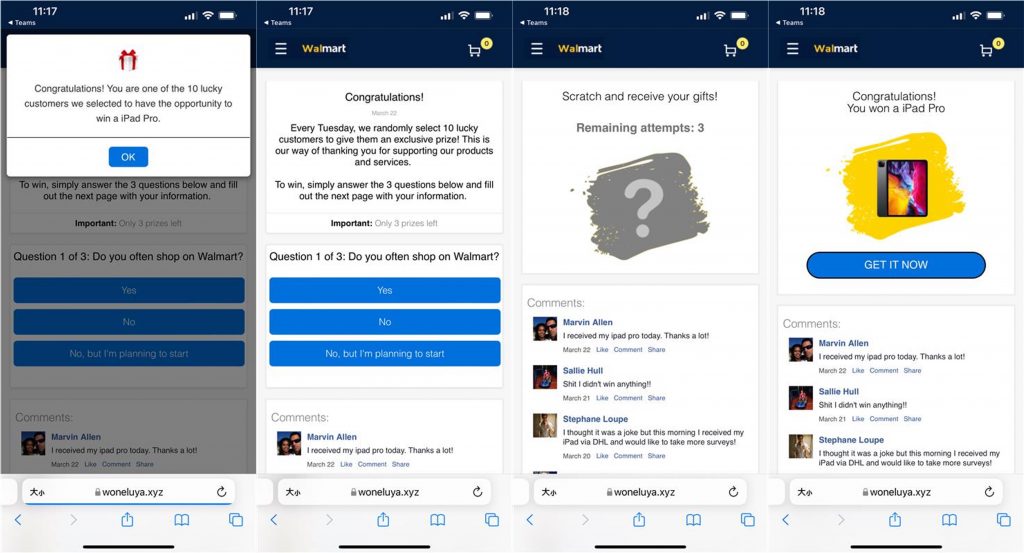
Amazon Gift Card Scam
We’ve seen Amazon survey scams several times, and now they’re popular again, but this time they’re using an updated layout:
- You’ll receive something beautiful today, kym. A loved one is sending you a Valentine’s Day Amazon gift card. Get it now: <URL> 🎁
Again, promising gift cards, scammers try to lure you into clicking on the attached phishing links that take you to fake Amazon survey pages:
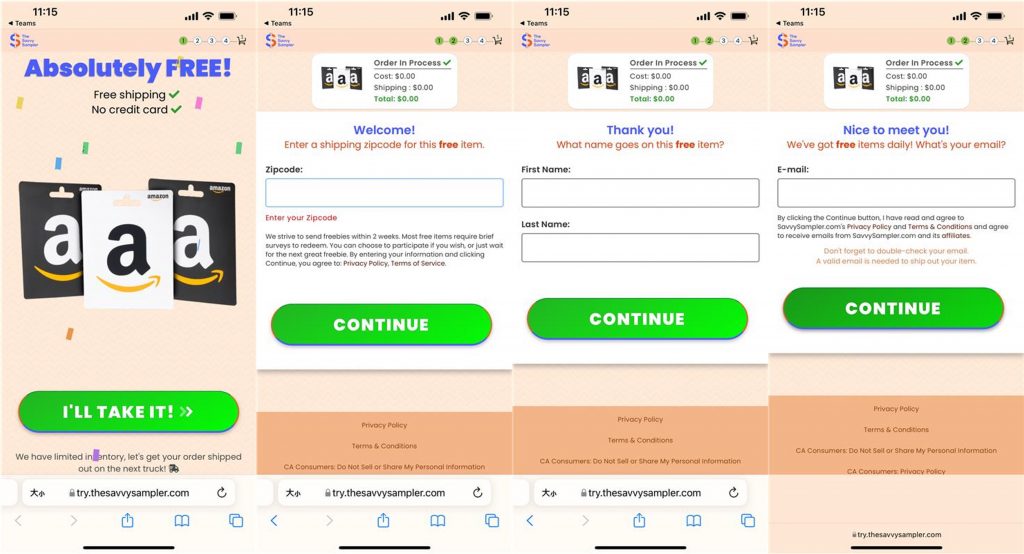
In the end, you will have to enter credit card information to claim your reward — and you know what will happen: no gifts will ever appear, and your credentials will be sent directly to a scammer!
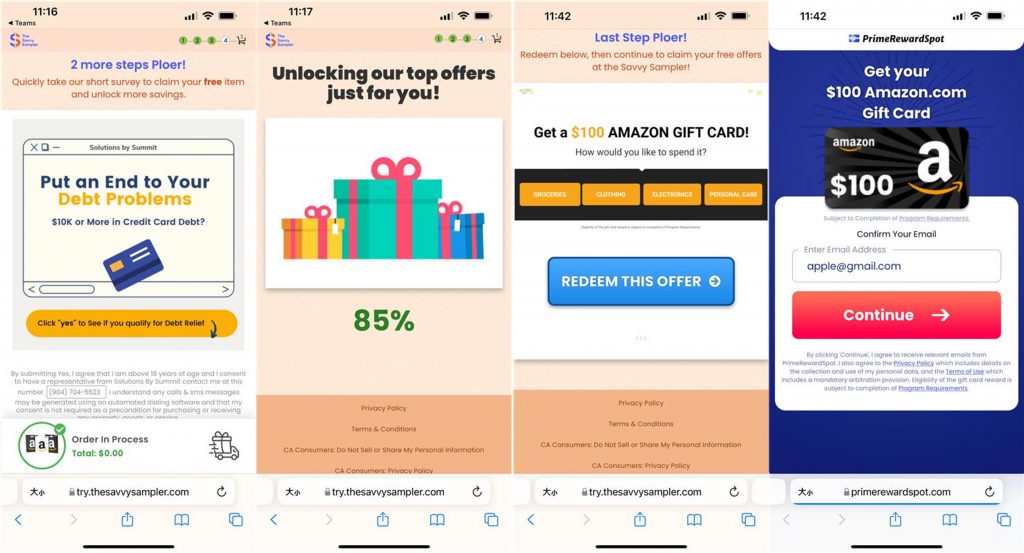
Scammers’ ultimate goal is to steal your personal information — they’ll record everything you enter on their fake pages and use it to commit cybercrimes: e.g., hack into your bank account or steal your identity!
Crypto Phishing Scams
Besides directing you to online survey pages, the links, in other instances, take you to fake log-in pages that appear to belong to various brands. These pages require you to submit log-in credentials and recovery phrases to download a software update, change account settings, or whatever other tasks the scammers have asked you to complete:
Crypto Wallet Scams
#1 Coinbase
Posing as Coinbase, scammers send fake security alerts via SMS to try to lure you into clicking on phishing links:
- coinbase wallet security upgrade vulnerability has been fixed, please download again: www[.]coinbasee[.]cc, download and log in to receive 10usdt
- by july 2022, the c0inbase wallet is upgraded and the taxes paid on the revenue generated will be paid by c0inbase. downl0ad link:hxxps://www[.]coinaase[.]com
Note: Take a close look at the web address. The legitimate web address of Coinbase is coinbase.com!
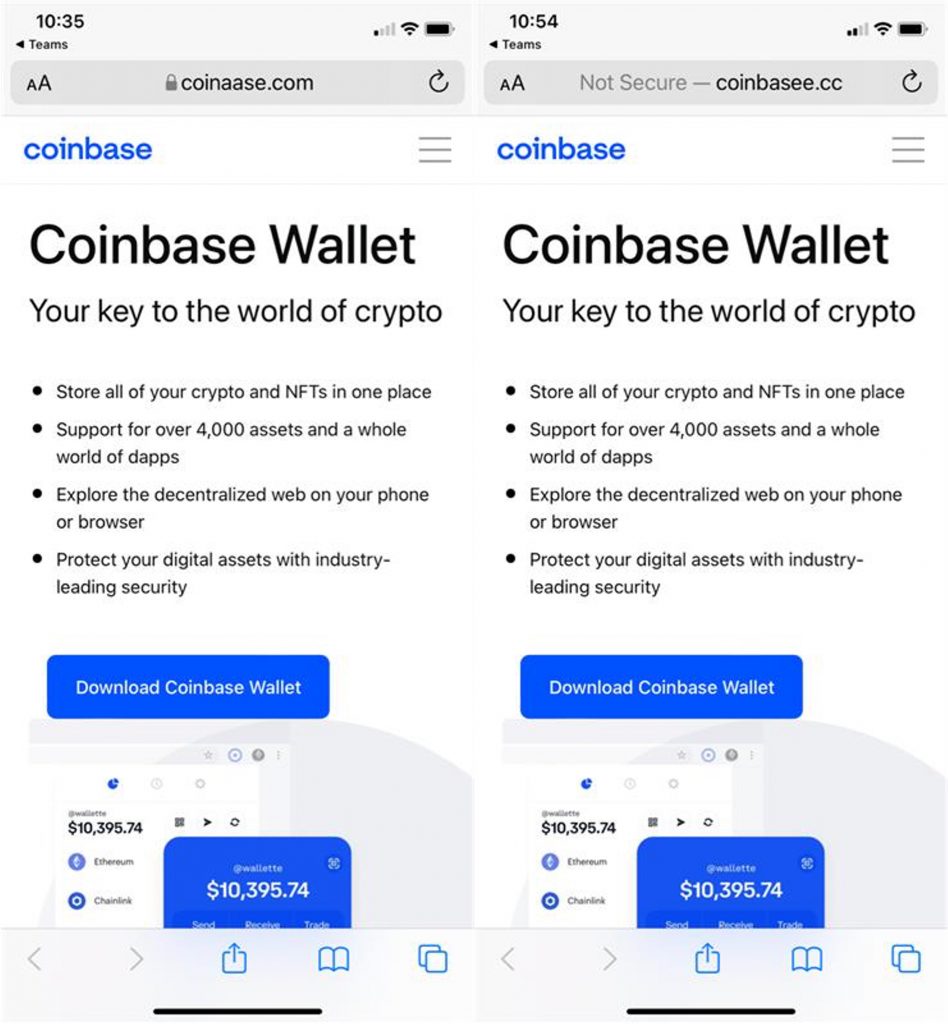
Examples of fake Coinbase websites. (Check the web address!)
#2 MetaMask
Besides text message scams, this week we’ve detected many fake MetaMask security alert emails that falsely claim your MetaMask wallet is going to be suspended for some security issue:
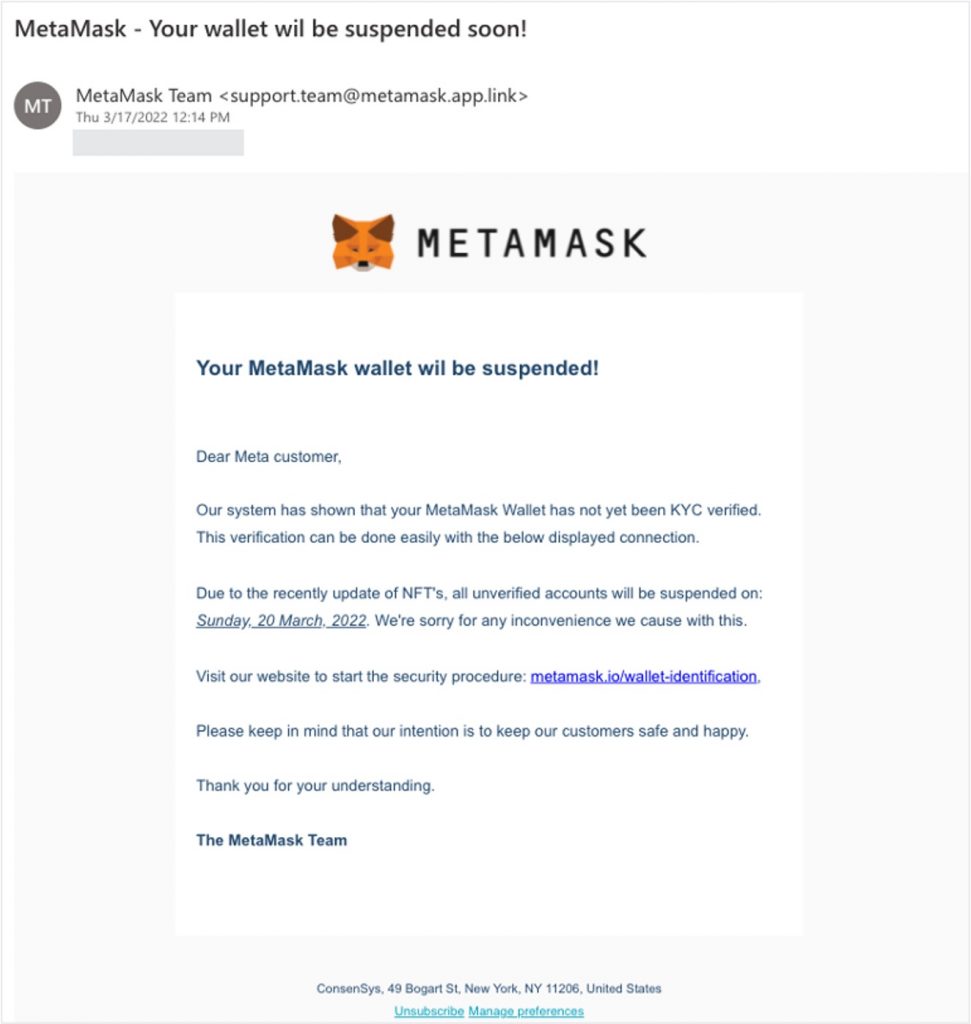
#3 Trust Wallet
Fake Trust Wallet emails have also been very popular with scammers lately:
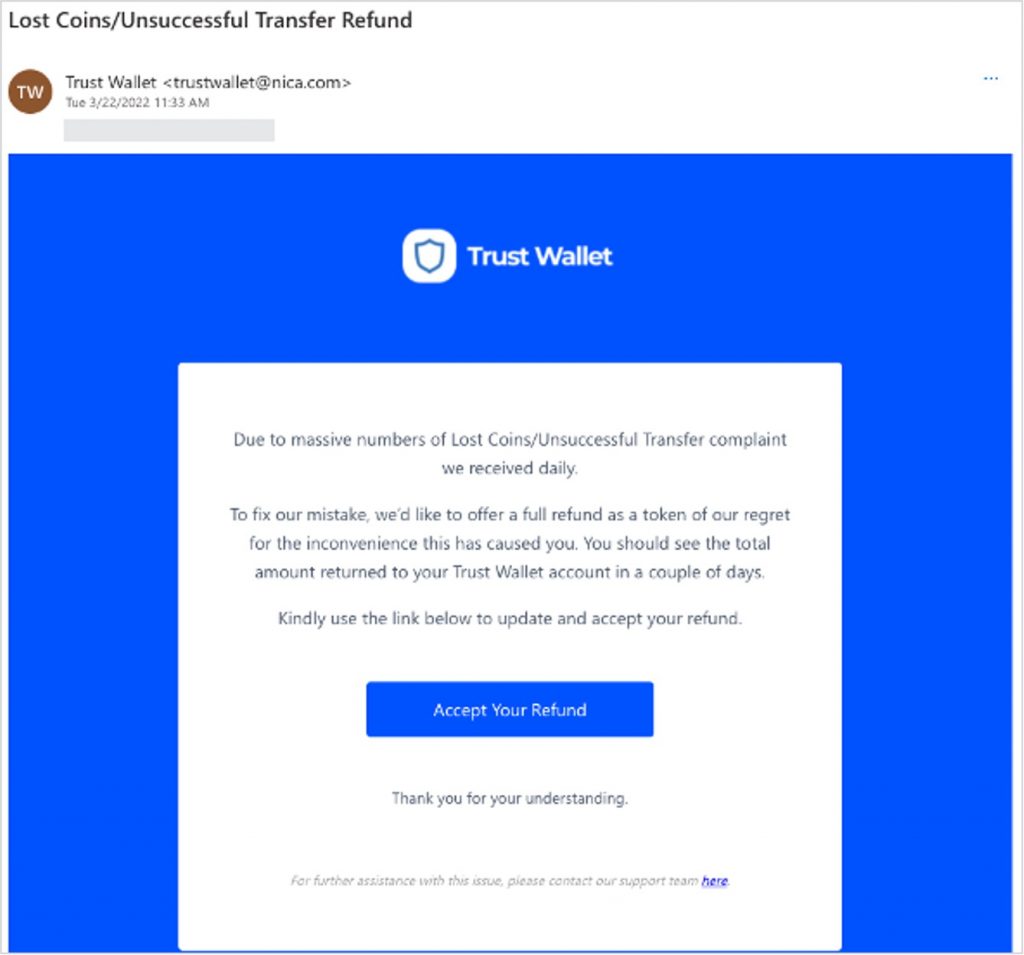
In all these types of scams, you are encouraged to click on an embedded link. The link then takes you to a fake MetaMask/Trust Wallet website.
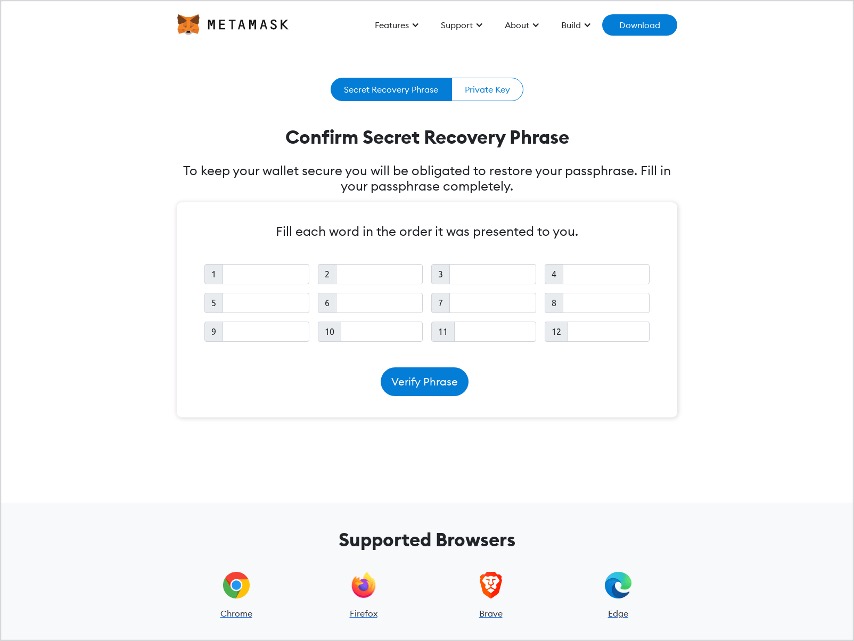
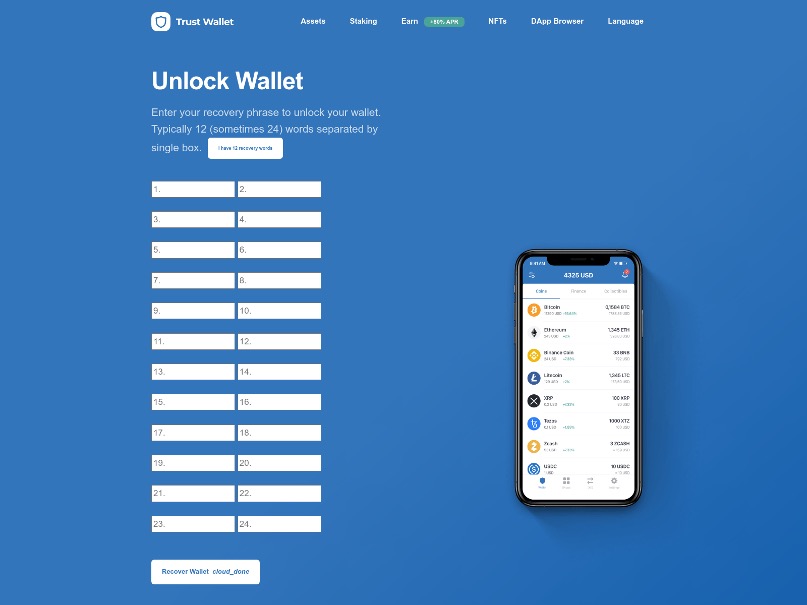
If you submit credentials like your recovery phrase, scammers can hack into your wallet and transfer all your crypto away! What’s worse, since cryptocurrencies are decentralized, it would be nearly impossible to get your money back! Watch out!
Bitcoin Giveaway Scams
Scammers also try to trick you into sending them cryptocurrency directly.
Who doesn’t want free bitcoin? What would you do if a random person online asked you to send them bitcoin and promised to double it? Sound too good to be true? It is. Don’t expect any bitcoin in return!
- bitcoin giveaway. hurry now and take part in the michael saylor 5000 btc giveaway. to take part in this giveaway kindly follow the steps in the link

How to Protect Yourself
- Double-check the sender’s mobile number/email address.
- Free gifts or prizes are always a major red flag.
- Always go to the official website/application instead of using links from unknown sources.
- Use Trend Micro ScamCheck to surf the web safely (it’s free!).
- Add an extra layer of protection to your device with Trend Micro Maximum Security. Its Web Threat Protection, Ransomware Protection, Anti-phishing, and Anti-spam Protection can help you combat scams and cyberattacks. Click the button below to give it a try:
As ever, if you’ve found this article an interesting and/or helpful read, please do SHARE it with friends and family to help keep the online community secure and protected.
0 Comments
Other Topics
